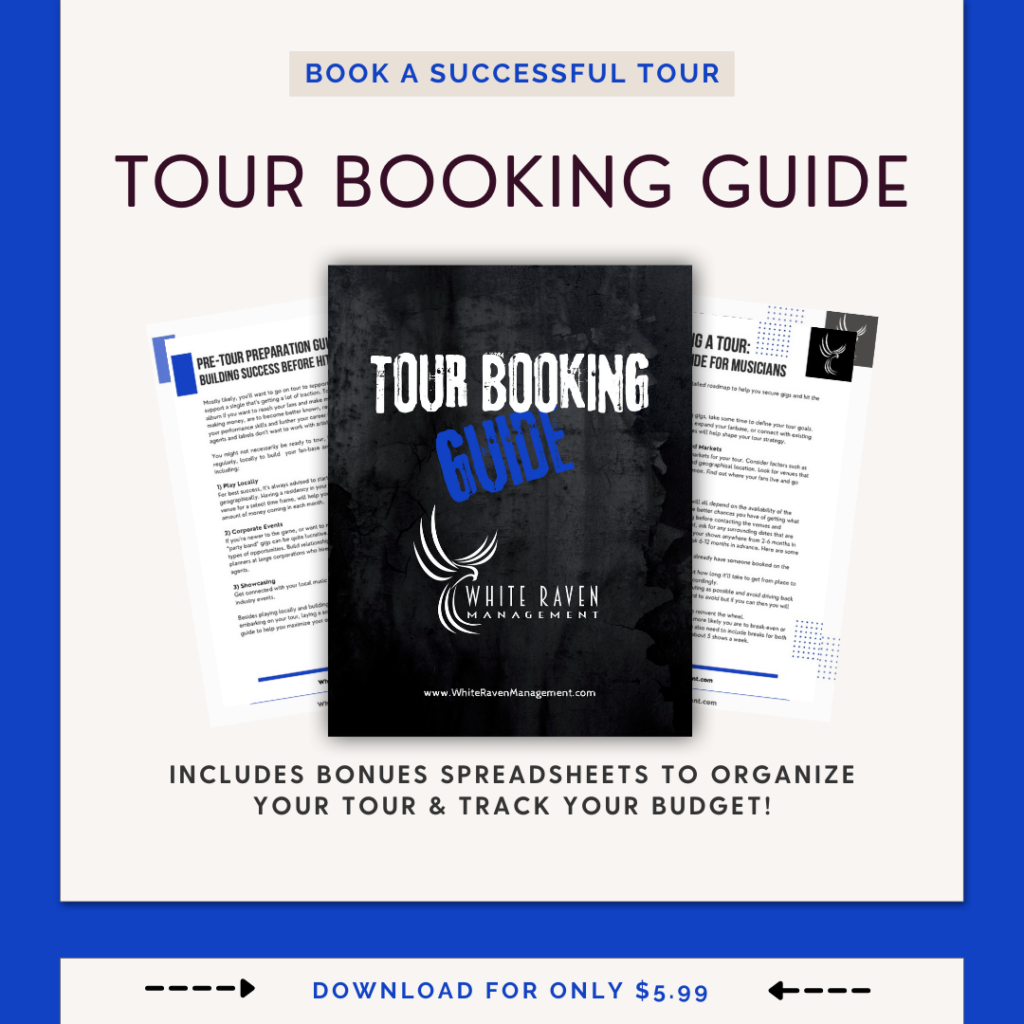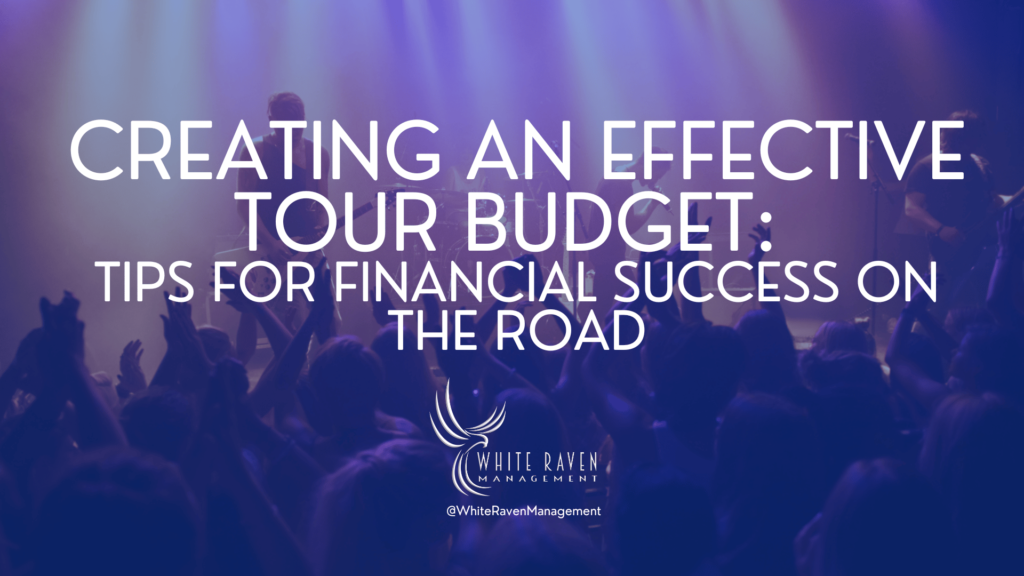Embarking on a tour is an exhilarating experience, but without careful financial planning, it can quickly turn into a financial burden. As your guide to financial success on the road, let’s delve into the intricacies of creating an effective tour budget. From transportation to accommodation, we’ll cover everything you need to know to ensure that your tour is not only musically fulfilling but financially sustainable.
1. Assessing Tour Expenses:
Before diving into budgeting, it’s essential to understand the various expenses associated with touring. These may include:
- Transportation (e.g., fuel, vehicle rental, flights)
- Accommodation (e.g., hotels, Airbnb, hostels)
- Venue fees and equipment rental
- Merchandise production and sales
- Per diems for food and incidentals
- Marketing and promotion expenses
- Miscellaneous costs (e.g., tolls, parking fees)
2. Setting Realistic Income Goals:
Estimate your potential income from ticket sales, merchandise, and other revenue streams. Be realistic about attendance numbers, ticket prices, and merchandise sales based on past performance and market research.
3. Creating a Detailed Budget:
Once you have a clear understanding of your expenses and income, create a detailed budget that allocates funds to each aspect of the tour. Consider creating a spreadsheet or using budgeting software to track expenses and monitor your financial progress.
4. Prioritizing Essential Expenses:
Identify essential expenses that are non-negotiable, such as transportation, accommodation, and venue fees. Allocate funds to these expenses first to ensure that they are covered before allocating funds to discretionary expenses.
5. Negotiating Cost-Effective Solutions:
Explore cost-effective solutions to minimize expenses without sacrificing quality. Look for budget-friendly transportation options, negotiate venue fees and equipment rental rates, and consider alternative accommodation options to reduce costs.
6. Building Contingency Funds:
Unexpected expenses are inevitable on tour, so it’s essential to build contingency funds into your budget. Set aside a portion of your budget for emergencies or unforeseen expenses to avoid financial strain during the tour.
7. Monitoring and Adjusting Your Budget:
Throughout the tour, monitor your budget closely and make adjustments as needed. Keep track of actual expenses and income, compare them to your budget projections, and make changes accordingly to stay on track financially.
8. Seeking Sponsorship and Partnerships:
Consider seeking sponsorship or partnerships to offset tour expenses. Reach out to local businesses, brands, or organizations that align with your music and tour values and propose mutually beneficial partnerships.
9. Educating Your Team:
Ensure that everyone involved in the tour, including band members, crew, and managers, understands the budget and their role in maintaining financial responsibility. Educate your team on budget priorities, spending limits, and the importance of financial discipline.
10. Reflecting and Planning for Future Tours:
After the tour concludes, take the time to reflect on your budgeting successes and areas for improvement. Use this feedback to refine your budgeting process for future tours and set yourself up for continued financial success on the road.
Creating an effective tour budget is essential for financial success and sustainability on the road. By assessing expenses, setting realistic income goals, prioritizing essential expenses, and monitoring your budget closely, you can navigate the financial challenges of touring with confidence and clarity. Here’s to financially successful tours that not only showcase your musical talent but also support your long-term career goals.
Are you tired of struggling to book gigs and plan successful tours? Do you dream of taking your music career to the next level? Look no further – our Tour Booking Guide is your ticket to touring success!


